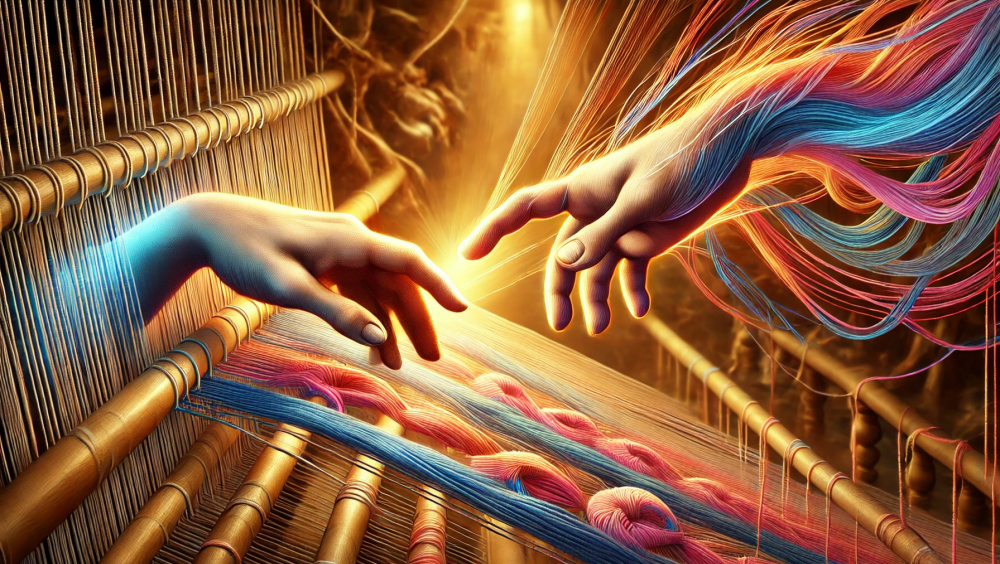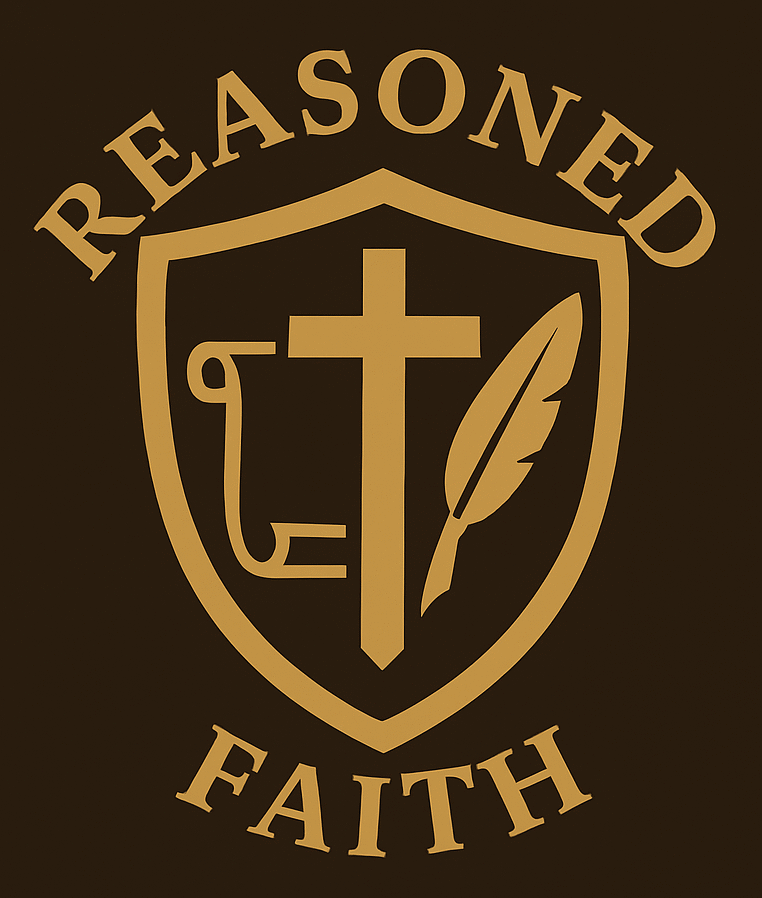
Catholic teaching on predestination starts with understanding how God’s plan ties in with our free will. This isn’t about unraveling some complex destiny but more about seeing this divine tapestry where every thread of free will and God’s wisdom intertwine, creating a picture that respects human freedom.
Predestination in the Catholic Church isn’t a cold, written-in-stone decree. It’s more like God weaving our lives with His omnipotent plans, allowing us to play a part in a designed masterpiece. Unlike ‘fate’, which leaves no room for choice, Catholic predestination celebrates the gift of choice and accountability.
While fate evokes a sense of inevitability, Catholic predestination acknowledges human responsibility in the divine puzzle. It’s this very freedom that allows us to reflect God’s image—an image that honors the dignity of making choices within His loving plan.
The relationship between God’s wisdom and our freedom resembles a gracious dance—a blend where divine guidance opens paths for authentic living. By asking us to choose, God affirms our worth and potential to walk in stride with His eternal plan. So, the concept here isn’t about being pushed along a path, but welcomed into a journey where each step reflects our free interaction with God’s love.
Differences Between Predestination and Fate: A Catholic Perspective
Why lump God’s loving plan with something as rigid as fate? Catholic teachings make it clear there’s a big difference. Fate often feels like a set script where human choices seem to vanish. It strips away the responsibility for our actions, leaving folks thinking they’re just acting out a story already written.
In Catholic belief, the focus is on a plan that values freedom. Here, God’s wisdom mingles with human willpower, encouraging people to take responsibility for their actions. It’s about embracing the dignity of choice, where each decision adds meaning to life.
Predestination in the Catholic sense isn’t about constraints; instead, it’s about cooperation. God doesn’t dictate every step but invites us to be co-authors of our paths. It’s an encouragement to embrace responsibility and make decisions that reflect God’s wisdom.
What differentiates this view from the notion of fate is the emphasis on collaboration, not control. God’s vision isn’t just about knowing the outcome but about empowering individuals to reach it authentically, with full moral accountability. This view uplifts the idea that our actions are meaningful, aligning our daily lives with God’s overarching design.
God’s Universal Desire for Salvation: Inclusivity in Predestination
In the Catholic realm, salvation isn’t like an exclusive club; it’s an open invitation for all. God’s inclusive love aims to gather everyone, not just a select few, under the wings of His grace. This universal offer contradicts any notion of predestination being limited to a handful.
This generous desire for salvation is rooted in respect for human dignity and the freedom to make our own choices. God’s providence respects these choices, offering guidance but never overshadowing our capacity to decide our paths.
God’s providence unfolds without micromanaging our every step. It’s more about steering life’s ship through stormy seas while ensuring that a light always shines. This balance between guidance and freedom affirms our worth and autonomy.
Even when life seems to throw challenges, there’s comfort in knowing God brings good from unexpected avenues, while never being the source of the wrong turns. Each choice plays into the bigger picture, reflecting a divine harmony between grace and human effort.
Practical Application: Living with God’s Plan and Exercising Free Will
Balancing God’s plan and our free will isn’t just theoretical—it’s about making it real in everyday life. Trusting in divine providence while taking responsibility for choices shapes a meaningful path forward.
Prayer and discernment offer tools to align our decisions with God’s intentions. It’s like having a spiritual toolkit that includes prayer, reflection, and seeking wise counsel, crafting decisions that echo His will.
Grace, while enhancing freedom, works alongside our human efforts to bring opportunities for supernatural acts. This isn’t about doing it all alone; it’s about letting grace empower authentic choices.
Guided by Scripture and teachings, making conscious choices rooted in faith promotes peace, especially during life’s twists and turns. Real trust emerges when reckoning with both our strengths and vulnerabilities.
Even missteps can lead to growth when approached with the trust that God can work through all situations. The daily invitation to live aware of God’s presence encourages a deeper connection with His eternal plan.

Your post beautifully captures the nuanced Catholic perspective on predestination, presenting it as a harmonious blend of divine wisdom and human freedom. The analogy of predestination as a “gracious dance” between God’s guidance and our free will is particularly poignant. It illustrates how our choices actively contribute to God’s overarching plan. This is a refreshing contrast to the rigid determinism often associated with fate, highlighting the dignity and responsibility inherent in our ability to choose.
The emphasis on collaboration rather than control underscores the Catholic belief in human accountability and the value of our actions. Your explanation that predestination isn’t a “cold, written-in-stone decree” but an invitation to co-create with God enriches the reader’s understanding of this concept. This collaborative vision not only empowers individuals but also aligns with the Church’s teachings on grace and human effort.
Your discussion on God’s universal desire for salvation is equally inspiring. Framing salvation as an open invitation rather than an exclusive privilege reinforces the inclusivity of God’s love. This perspective, coupled with practical advice on aligning decisions with divine will, makes your post both theologically rich and deeply relatable. Thank you for presenting such a balanced and hopeful exploration of a complex topic!
Thank you—this captures the heart of what I hoped to communicate. Predestination isn’t about being locked into a fate we can’t escape; it’s about God inviting us into a relationship where our choices really matter. That “gracious dance” image reflects how grace and free will work together—not in opposition, but in cooperation. When we understand salvation as an open invitation rooted in love, it shifts the focus from fear or fatalism to freedom and faithfulness.
I think quite a few of the denominations teach about the freedom of choice. They use the analogy of when Eve took the apple from the snake. It was her choice to sin and she didn’t have to do it if she didn’t want to.
Isn’t it wonderful that we all have the freedom of choice in our lives, and God gives us the chance to choose the right path with free will? Nothing is forced, but it is up to all of us to make the right decisions in life, as the will count for or against us in the end.
Sorry for the late reply! You’re absolutely right—free will is a beautiful and essential part of how God created us. The Catholic Church fully agrees that God never forces us to love Him or obey Him. Love, by nature, must be freely chosen.
The story of Eve shows that from the very beginning, God gave humanity the freedom to choose—and sadly, the freedom to reject Him too. That same choice is set before each of us every day. What Catholic teaching adds is that, while we’re free, our wills have been weakened by original sin. That’s why we need God’s grace not only to see the right path but to walk it.
We believe that God offers us that grace constantly—through prayer, the sacraments, Scripture, and the Church He gave us. Our choices matter deeply, and yes, we’ll be held accountable. But we’re not left to figure it out on our own. God is always inviting, helping, and strengthening us, if we let Him.
So yes, free will is a gift—but so is grace. We need both.